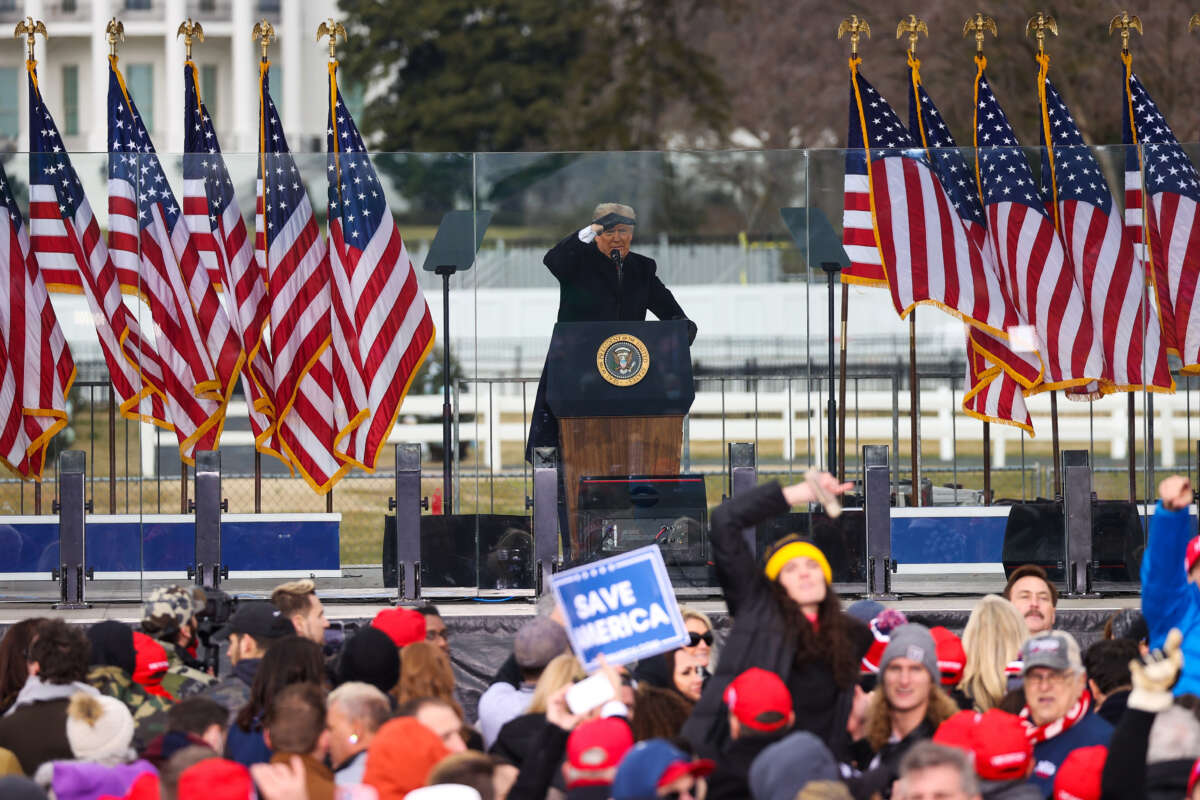The longtime partner of a U.S. Capitol Police officer who died as a result of the January 6, 2021, attack on the Capitol by a mob of loyalists to Donald Trump is suing the former president for millions of dollars, alleging that his actions led to her partner’s death.
Sandra Garza, whose partner Brian Sicknick died the day after the Capitol attack, is also suing two members of the Trump-inspired mob, Julian Elie Khater and George Pierre Tanios, for their direct physical attacks on him.
After illegally breaching the Capitol grounds, the duo attacked Sicknick with chemical spray. Sicknick collapsed at home later that evening, suffering two strokes and dying the next day at age 42.
Garza’s lawsuit, which was filed on Thursday in U.S. District Court in Washington, connects Khater’s and Tanios’s actions with Trump’s incendiary words briefly before the attack. Garza is suing the three men listed in her lawsuit for $10 million each in damages.
Trump “endorsed and ratified the violent actions of the mob that attacked the U.S. Capitol,” through his rhetoric on the day of the attack, motivating both Khater and Tanios, the lawsuit alleges.
“Many participants in the attack have since revealed that they were acting on what they believed to be Defendant Trump’s direct orders in service of their country,” Garza’s lawsuit states, noting that, “before directing the mob to the U.S. Capitol, Defendant Trump instructed them to ‘fight like hell’ and declared that ‘you’re allowed to go by very different rules’ and ‘you have to show strength.'”
The lawsuit goes on to allege that:
The horrific events of January 6, 2021, including Officer Sicknick’s tragic, wrongful death, were a direct and foreseeable consequence of the Defendants’ unlawful actions. As such, the Defendants are responsible for the injury and destruction that followed.
Garza, who is the personal representative for the Estate of Brian Sicknick, also referenced Trump’s words in the weeks prior to the attack on the Capitol, including his calls for his followers to attend the “Stop the Steal” rally in front of the White House on January 6; on December 19, 2020, Trump tweeted that the events of January 6 “will be wild.”
“Particularly considering Defendant Trump’s prior directive to a white supremacist group — the Proud Boys — to ‘stand by,’ Defendant Trump’s tweet was understood by his followers to be a call to violence,” Garza’s lawsuit says.
A spokesperson for Trump downplayed the lawsuit, claiming that Trump is “immune from frivolous attacks” — referring to a presidential power that allows presidents to be held to higher standards when making statements in their official capacity as president.
That argument has been rejected by a court at least once before, however. In February of last year, a federal judge tossed out that line of defense in another lawsuit purporting that Trump was partially responsible for the violent events of January 6.
“It is at least plausible to infer that, when he called on rally-goers to march to the Capitol, [Trump] did so with the goal of disrupting lawmakers’ efforts to certify the Electoral College votes,” U.S. District Judge Amit Mehta said in that decision.
Join us in defending the truth before it’s too late
The future of independent journalism is uncertain, and the consequences of losing it are too grave to ignore. We have hours left to raise the $12,0000 still needed to ensure Truthout remains safe, strong, and free. Every dollar raised goes directly toward the costs of producing news you can trust.
Please give what you can — because by supporting us with a tax-deductible donation, you’re not just preserving a source of news, you’re helping to safeguard what’s left of our democracy.
